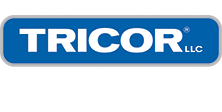Every home comes with risks
If you’re looking to purchase your first home, or remodeling an existing home, it’s important to understand how your home’s structure, building material, personal possessions, etc., all affect your homeowners insurance premiums.
Heating system
The two most common causes of residential fires are cooking and heating. Depending on if your heating system is gas, oil or electric, it could affect your insurance premiums.

Wood stoves and fireplaces
As a source of smoke and fire, wood stoves and fireplaces can increase your insurance premiums. Some insurance carriers will require an inspection of your wood stove/fireplace prior to approval of a homeowners policy. Good maintenance is the key to keeping your premiums low.
Roof
The age of your roof can be a factor leading to more expensive home insurance premiums.
Electric service
Depending on the overall age of your home, your wiring could present a higher potential for fires. For example: Aluminum wiring was frequently used prior to 1970, but is no longer used because of its potential to overheat and cause fires.
Animals
Insurance carriers use national data analytics to base their risk assessment on pets and even exotic animals. As an example, while any dog has the ability to bite or scratch, bigger dogs will have more power behind them and have shown to cause more serious damage. Your insurance carrier will base your premium on their level of risk, and certain breeds of dogs and exotic animals can impact your premiums.
Do you have a trampoline?
Your kids will continually beg you for a trampoline; trust us we’ve been there! On average, expect your annual premium to increase $50-$100 if you have a trampoline. If you already have a homeowners policy, check to see if there is a “trampoline exclusion," which means it would not pay for any suit involving a trampoline accident.

Do you have a pool on your property?
The potential for drowning results in higher liability risks. Many insurance carriers will require your pool to be protected by a fence.
Occupancy. This one is key!
Is your home being used as a part of your business? Maybe you have an in-home daycare, customers or suppliers visiting your home. You need an insurance expert to help you understand the difference between personal and business insurance, and what is covered by each.
Pride of ownership
Not only does your mortgage company require that you keep the property looking good, it also can help with premiums. Some basic maintenance you can do:
- Keep landscaping and gutters intact
- Check and clean your dryer vent
- Check decks, walkways and fences to avoid anyone getting hurt on your property
Steps/Decks
Older adults are highly susceptible to fall injuries that result in bone fractures. Railings can create a barrier to prevent falls. Your insurance carrier will review number and height of steps, and how high any deck or porch stands, and may require a railing if you don’t have one.
Claims history
Every homeowners insurance claim you have is reported to the comprehensive loss underwriting exchange (CLUE). Your claim record is kept on file for about five years. If you have multiple claims, you may be considered high risk which could mean higher insurance premiums or no insurance at all.
PARTNER WITH TRICOR
This isn’t a comprehensive list but it is a good start for you to understand what insurance carriers want to know. Our agents have years of experience dealing with home and property claims, and they’ll work with you to help make sure you’re covered.

